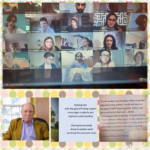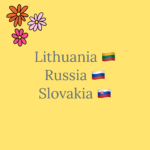On Tuesday the 8th we learnt about representing perspectives in history through literature. The history we were learning about was the conflict between Native American and Europeans in New England. We each had different thoughts that came from the experience highlighting the different contexts we all come from. Daniel focused on the parallels to the Australian and American experiences, as a person who has lived a life on land that was stolen and exploited. While Anh focused on the specific poetry methods that we were taught to help students get a deeper understanding of historic documents.
Living on Ngunnawal land
By Daniel
Below is an example of an acknowledgment of country. In Australia, when we start a formal gathering, such as a work meeting or sporting event we often say an acknowledgment of country which acknowledges the Aboriginal or Torres Strait Islanders who’s lands we a meeting on. Taking on board the that ethos of ‘anything can be poetic’ I have attempted my own acknowledgment of country taking inspiration from the one we recite at school.

I would like to respectfully acknowledge the ancestors of this country and pay respect to their descendants as custodians of this land, the Ngunnawal people.
On this land, families live, work and play, children learn of customs and culture, traditions are passed from generation to generation, wisdom is shared, and life is still celebrated in harmony with the natural environment.
We honor the Elders past, present, and emerging who have laid the foundations for self-determination and rights for Aboriginal Peoples and/or Torres Strait Islander Peoples.
Below is a brief video talking about some history and what it means to be living on Ngunnawal land.
What it Means to be Living on Ngunnawal Land
Poetry in History and English – an effective tool to motivate learners
By Anh
I have been struggling with creative writing and poetry for many years. I enjoyed reading poems, but I have never succeeding in writing poems. I am also interested in reading history books, but I am not good at remembering dates. How lucky I am when I joined the lesson today with the focus on “Representing perspectives in teaching history” from Professor Tammis Coffin. I have to say that her meaningful lecture with suggested practical activities and specific steps opened a new door for me in using poetry in teaching English, History, and Literature. It is clear that the presented procedures of creating poems from historic documents encourage students to read the documents carefully to achieve deep understanding of the documents so that they are able to choose important words and phrases to start their own poems. This activity not only to helps students to understand the historic documents but also shapes their critical thinking when they express their view on their chosen words and phrases from the texts.
I do think that I can apply these activities in different classes with minor adaptation to suit my learners’ language levels.
Following is my poem:
“Indians and land
I wonder why
the connection between them
I wonder how
they survived in the fight against colonists
in the past
In many decades
They fought and tried
to keep land and rivers
belonging to them and their descendants
I hope their ownership of land will never divide”.
Overall, we found this to be a thoroughly engaging experience for all of us. We were able to make links to our own experiences and gave us tools to expand our pedagogy.
All opinions expressed by the program participants are their own and do not represent nor reflect official views from the Bureau of Educational and Cultural Affairs of the U.S. Department of State, or of the Institute for Training and Development, Inc.




